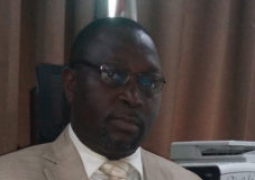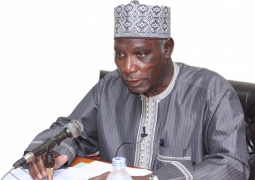
Mr Sanyang made the remarks yesterday – Tuesday – during the opening of the training of trainers on the main census enumeration for the 2024 Population and Housing Census Data Collection.
The objective of the 2024 Population and Housing Census Data Collection is to provide statistics on demographic, social and economic characteristics of the population, household and housing characteristics.
The information from the Population and Housing Census Data Collection helps Central and Local Government to plan for various social services such as education, health, housing, sanitation and others. The information that will be derived from the census will also help the private sector, including businesses to plan their activities, which will be of benefit to the economic development of the country. The 2024 Population and Housing Census Data Collection will be the first-ever digital census for The Gambia.
According to Statistician General, they would not compromise on anything that threatens the integrity of GBoS, citing that any data that they produce is used for every important purposes including the tracking of achievements towards the attainment of the development targets at national, regional and global levels.
SG Sanyang went on to say that the quality of the training is crucial to the success of the census and should be seriously taken.
“This is where everything starts and if it is not well received it will affect the quality of the census data, and therefore policies, projects and programmes developed using this data will not achieve their desired objectives,” he further said.
He described census particularly digital census as resource intensive, noting that it is their responsibility to ensure that the best is achieved.
Lamin Camara, assistant country representative for UNFPA, said that it is through the Population and Housing Census that they can address the needs of citizens effectively, foster inclusive development, and build a brighter future for all.
He told trainers that they are the ones who will equip the enumerators with the knowledge, skills, and mindset necessary to carry out the census operation successfully, adding that their dedication and commitment to the task will directly impact the quality and accuracy of the data collected.
“Your work extends beyond mere numbers; it touches the lives of countless individuals and shapes their futures. Through your efforts, we can ensure an inclusive and accurate representation of our society,” he also told them.
Serign Touray, representative of the World Bank, described the training of trainers as a critical aspect of the census process geared towards facilitating a thorough understanding of the census process.
He pointed out that this year’s census is important in many ways, adding not the least being that it will be the first digital census, is quite exciting.
Additionally, he stated that the data from the census will be the basis for other statistical activities such as surveys, poverty analysis and vulnerability maps, among others that are planned in the regional statistics project currently under implementation.
Mr Touray also re-echoed World Bank commitment to the census throughout.
Sering Falu Njie, chairman for the National Statistics Council, thanked their partners such as the World Bank, UNFPA, UNESCO and the Government of Republic of Senegal for their invaluable support to the conduct of the 2024 census.
Read Other Articles In Headlines




